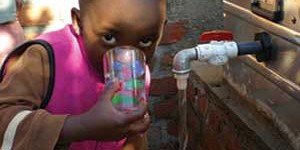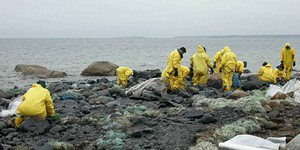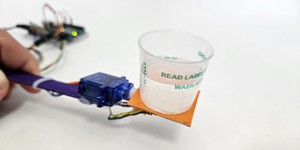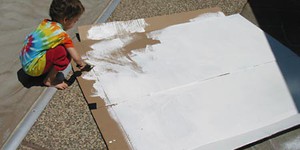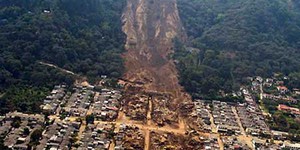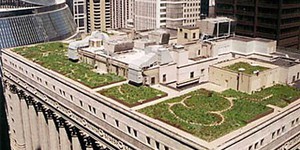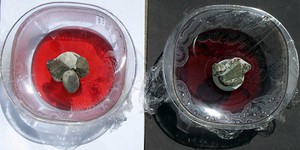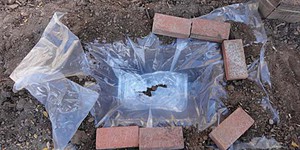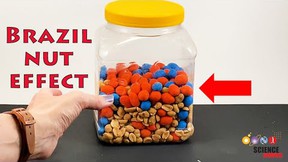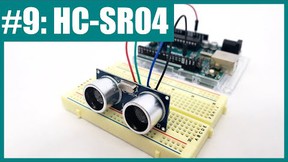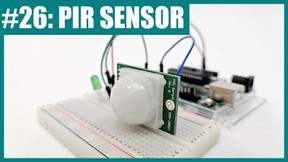Third Grade, Environmental Engineering Science Projects (13 results)
The human population on Earth is now more than 7.5 billion, and growing quickly. With more and more of us living an energy-intensive, modern lifestyle, the environmental stresses from human activity continue to increase. Greenhouse gases leading to global warming and fertilizer runoff resulting in marine "dead zones" are just two examples of large-scale environmental impacts from human activity. See how science, engineering and technology can help us take good care of our environment while still enjoying the comforts of a modern lifestyle.
|
Select a resource
Coding Projects
Sort by
|
Living in the industrialized world, like the United States, we are fortunate because we don't have to worry about the quality of our drinking water. Your community has the means to clean and provide water to you. But in many parts of the world, people don't have this luxury. Whether it is due to war or poverty, the lack of clean water leads to many health and social problems. In this environmental engineering science project, you will learn about different methods to filter out impurities in…
Read more
Have you ever seen news coverage or other pictures of an oil spill in the ocean and wondered how all of that oil could be cleaned up? Oil spills can devastate wildlife by covering them with oil, and they can damage our precious water resources by contaminating them with oil. Part of the problem of dealing with oil spills is that the oil can be challenging to clean up. In this science project, you will test the absorptivity of different materials (called sorbents) to discover which ones are best…
Read more
New
Have you ever seen a waiter balance an entire tray of drinks without spilling any? How do they do it? Do you think you could build a robot waiter that can do the same thing? In this project, you will learn how to build a self-balancing robotic tray. You can incorporate the auto-leveling tray into one of our many other robotics projects, like the Bluebot or robotic arm.
Read more
What do humans need to survive? We need food, water, and warm shelter. We all need a warm place to live, particularly when it's chilly outside. How do many of us warm our houses or apartments? We depend on fossil fuels to supply gas and electricity to our heaters. But burning fossil fuels to create energy is harmful to the environment. What if there was a way to warm our homes without burning fossil fuels and it was free? In this science fair project, you will build a solar air heater and see…
Read more
Landslides are powerful geological events that happen suddenly, causing fear in people who live in areas with unstable hills, slopes, and cliff sides. Landslides damage the surrounding habitat and can destroy homes in their path. But what causes landslides? Can slides happen on any slope, or do slopes have to have certain characteristics, such as a steep angle and a specific material mass? In this geology science project, you will learn about the different types of landslides and the…
Read more
One way to save water is to turn the faucet off while you brush your teeth. But did you know that there are products that can help save water even while the water is on? In this experiment find out how low-flow faucets and aerators work to reduce the flow of water. How much water can you save?
Read more
New
Can AI understand human language? In the future, AI could aid in emergency interpretive service in the hospital when translators aren't available. But can current AI algorithms understand non-verbal languages like sign language? In this science project, you will test whether AI can learn sign language gestures or phrases to see if it can be used for interpretation.
Read more
Would you like some sky vegetables for dinner? How about some fresh-cut roof flowers to put in vases in your house? Around the world, rooftops are being transformed into living green expanses. Besides beauty, rooftop gardens have a number of advantages, including growing food and taking carbon dioxide out of the air while releasing breathable oxygen. But can rooftop gardens also keep your house cooler and lower your energy bill? Try this science fair project to find out.
Read more
Have you ever thought about being stranded on a desert island? How would you find water to drink? What would you need to survive? In this science fair project you'll discover how to turn the ocean into a source of freshwater by using the power of the Sun.
Read more
Does growing your own house sound futuristic? If so, this project might surprise you! An overlap of biology, material science, and environmental science has resulted in some intriguing self-assembling materials. In this project, you will grow one of these materials: mycelium composite. It is made of agricultural waste and mushroom roots. You will explore two ways to grow your own construction material. Try it out and see which method proves to be the strongest!
Read more
Most of us live in areas where sources of water exist nearby as oceans, rivers, lakes, ponds, streams,
reservoirs, wells, or even underground streams. But in some places, like the desert, water is hard to find
and a precious resource. In this environmental engineering science project, you will investigate one way
that people living in arid regions can collect water inexpensively: dew traps.
Read more
When we get hot, we sweat. Sweating helps cool us down. When the water evaporates, it removes energy from our bodies. This sort of evaporative cooling can also be used to cool homes using what are referred to as swamp coolers. In some cases, these coolers may be more energy-efficient than traditional air conditioners. In this chemistry science fair project, you will find out which liquid works best for evaporative cooling.
Read more
|

